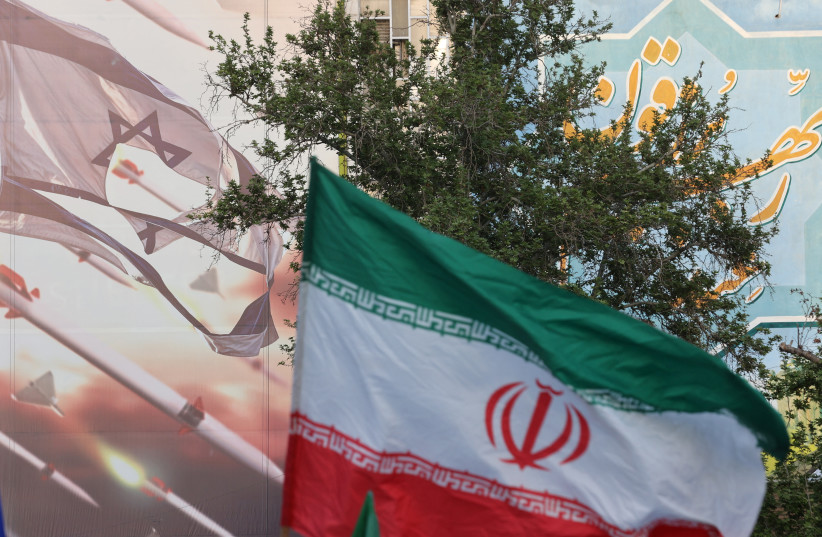Is Israel too passive in waiting for the Iranian response?
Israel faces a tense period of anxiety and preparation, reminiscent of 1967, as it braces for potential retaliation from Iran and Hezbollah after recent high-profile assassinations.

One of the most tense periods in Israeli history was the three weeks preceding the Six Day War in 1967, a period known as the “waiting period” or tekufat hahamtana.
This was a period of anxiety, uncertainty, and preparation within Israel as the country faced the imminent threat of an all-out regional war. Egypt had closed the Straits of Tiran, an act of war, and the rhetoric from the Arab lands was chilling.
Only 19 years old and isolated internationally, there was genuine concern that the country might not survive. Anxiety was palpable, with mass graves being dug in parks as a grim precaution.
This anxiety-filled period ended on June 5, 1967, when Israel preempted its enemies, destroying the Egyptian Air Force on the ground in a matter of hours and changing the course of history.
That period comes to mind today as the country is again gripped by apprehension, waiting for a response from Iran and Hezbollah – either together, separately, or with other non-state actors in the “axis of resistance” – to the twin high-profile assassinations last week of Hezbollah’s Chief of Staff, Fuad Shukr in Beirut, and Hamas’s leader, Ismail Haniyeh, in Tehran.

It would be wrong to say that the country is panicking – it most definitely is not. Brisk sales on home generators, bottled water, canned tuna, and salami are signs of preparedness, not panic.
Panic comes in the form of people clamoring to leave the country, refusing to leave their homes, or seeing daily life come to a standstill. That is not what Israel is experiencing.
It is, however, experiencing anxiety. And who can blame it? With Hezbollah and Iranian leaders threatening retaliation and with the media full of endless speculation about what kind of retaliation to expect and when, the nervousness is understandable.
The question, however, is whether similar anxiety is being felt in Beirut and Tehran. Are they, too, stocking up on tuna, bottled water, and salami? Are they wondering when Israel will hit, how, and from what direction?
If not, why not?
Something about the current situation feels off. Two arch-terrorists are eliminated – one in Beirut with a US-issued bounty on his head, the other in Tehran without Israel even claiming responsibility – yet Israel is the one adopting a defensive posture, what is called in Hebrew, konnenut sfiga, bracing for an attack.
Instead of Israel being in a defensive posture for eliminating the terrorists, Beirut and Tehran should be the ones worried – since they harbored them.
Even more than this period being reminiscent of the tekufat hahamtana, it is reminiscent of early April after Israel killed Islamic Revolutionary Guard Corps commander Mohammad Reza Zahedi in Damascus when Israel braced for an Iranian response that came in the form of over 300 drone, cruise, and ballistic missiles fired at the country.
Watching television broadcasters announce on a Saturday night in mid-April when the drones, missiles, and rockets were scheduled to arrive was like monitoring the arrival screen at Ben-Gurion Airport. It was a bizarre feeling: you saw a bullet headed in your direction and just prayed that the country’s defenses would work and the bullet would either be intercepted or miss its mark. In other words, someone was trying to kill you, and you just prayed they would not succeed.
One problem with the current situation is that it engenders a feeling of powerlessness among the population: waiting for the second shoe to drop, waiting for the inevitable.
But Israel is far from powerless. Rather than just waiting to see what happens – or how many people are killed – before responding, it should already be projecting its power. If it does not want to exacerbate the situation or is being held back by the US from taking further action, the country should at least make it clear that any type of attack will be met with immediate and overwhelming force. Planning for such a response should, as it certainly is, already be well underway.
This time the threats need to be backed up with immediate action, not, as has been the case up until now, with empty rhetoric from Prime Minister Benjamin Netanyahu, Defense Minister Yoav Gallant, or Chief of Staff Herzi Halevi about “sending Lebanon back to the Stone Age” – threats issued so often it is doubtful anyone takes them seriously. This time, the response needs to be immediate and devastating.
PROJECTING POWER is also crucial for the country’s morale. Israel is not helpless. It has one of the strongest militaries in the world. The population needs to be reminded of this and see it to maintain psychological well-being. Feeling powerless is detrimental, and this defensive crouch in the face of Iranian and Hezbollah threats saps morale.
The hit on Shukr came only after 12 children and youth were killed by Hezbollah rocket fire at Majdal Shams. Only after this atrocity was Shukr assassinated, and that reinforces a bad pattern: if an attack is “successful” and causes casualties, Israel responds; if not, it will let it slide.
This approach is flawed. Had Israel acted to destroy Hamas’s capabilities after the terrorist organization fired countless rocket attacks since 2001, rather than waiting for a mass casualty event before responding, the current situation might have been quite different.
Why are we on the defensive?
It is a mistake for the country to be in this defensive crouch. It sends the wrong message to Israel’s enemies and to its own people.
That said, there are similarities and differences between the current waiting period and the one that preceded the Six Day War.
First, in 1967, there were doubts about whether the Israeli army could withstand a coordinated attack by neighboring Arab states. Today, while there is concern about potential damage, there is greater confidence in the army’s ability to manage the threat.
Israel’s military capabilities were more limited in 1967; today, it has a much mightier force and the most formidable missile defense system in the world.
Second, in 1967, Israel felt completely isolated in the world, especially after Egypt demanded the removal of UN peacekeeping forces from Sinai, to which the UN acquiesced. There was also skepticism about the level of support Israel could expect from the world.
Today, the US has sent warships to the region to assist Israel in batting drones, rockets, and missiles out of the sky, as it did in April. Additionally, there is coordination with a regional defense alliance established after the Abraham Accords under the leadership of the US Army Central Command (CENTCOM). This represents a significant regional alliance.
Finally, there’s a significant difference in the nature of the existential threat facing Israel now compared to 1967.
Back then, there was a genuine fear that a war could lead to Israel’s destruction – that enemy armies would invade, conquer, and eradicate the Jewish state. Today, while Israel still views itself as engaged in an existential battle, the immediacy and nature of the threat have changed.
The current concern is not that an immediate attack by Iran, Hezbollah, and their allies would destroy the state outright, at least not until Iran gets nuclear capabilities. Instead, the fear centers on the potential for a prolonged war of attrition if Israel fails to decisively defeat or deter its enemies now. Such a war could gradually grind down the country, making life increasingly difficult for its citizens, destroying the economy, and threatening Israel’s long-term viability.
This persistent threat – also an existential one – demands proactive measures. Israel cannot afford to wait passively for attacks. The country must take preemptive action or respond swiftly and decisively to secure its future and survival.
https://www.jpost.com/israel-news/defense-news/article-813267?


